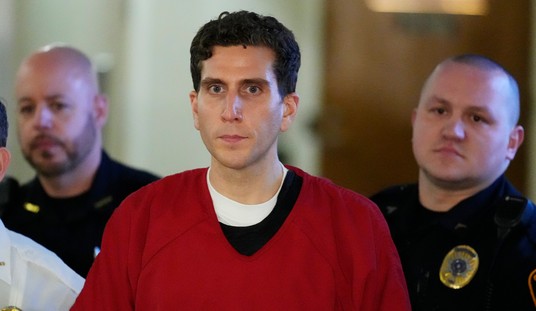Say what you will about Donald Trump, but Mr. Bald Eagle has certainly gotten the nation talking in a very serious fashion about important nuances of constitutional law, particularly on the subject of immigration. This long overdue conversation will no doubt be tested in the courts multiple times in the coming years and perhaps we will get some clarity, but for the moment the debate continues to rage among candidates and legislators alike. Jumping into the conversation this week is “constitutional literacy adviser” for the National Constitution Center, Lyle Denniston. In an opinion piece which seems to specifically target several proposals from The Donald, Lyle opines on the legality of mass deportations.
The author references an editorial in the Washington Post which describes the deportation of all illegal aliens as, “a humanitarian upheaval on a scale rivaling the refugee crisis in Syria.” He then goes on to detail his findings as to what the Bill of Rights and later amendments have to say on the subject. (Yahoo News… some emphasis added)
WE CHECKED THE CONSTITUTION, AND…
Foreign nationals who enter the U.S. illegally and then remain do not have fully protected rights under the Constitution. They cannot vote, for example. But it has been true since at least 1886 that the Fourteenth Amendment has been interpreted as assuring them at least a significant measure of constitutional equality and fair treatment. The government simply does not have the constitutional power to do whatever it wishes with non-citizens, based solely on their illegal presence inside the country.
There is, of course, a basic constitutional understanding that a sovereign nation has broad power to protect its borders, to decide who may enter its territory, what foreign nationals who enter can do while inside its borders, and how long they may be allowed to stay. Congress basically decides most of those issues by passing laws, but the Executive Branch has very wide discretion to decide the particulars of enforcing those laws.
Neither branch, however, may simply sweep away “life, liberty or property” from undocumented immigrants, just because they lack the proper papers. And neither may the state governments where such immigrants live.
This is some truly remarkable – if puzzling – thinking. In nearly the same breath Denniston acknowledges that sovereign nations have the power to protect their borders and determine how long foreign nationals may stay within them, but then broadly implies that Section 1 of the 14th Amendment forbids the selfsame government from kicking out large numbers of people because it would “sweep away” their life, liberty and property. He seems to be speaking only to “mass deportations” since that’s put right in the title of his paper. The real question here is… what constitutes mass deportations? More than ten million? Ten thousand? Ten? And perhaps more to the point, it boggles the mind to hear a suggestion that the act of deportation is depriving someone either their life, their liberty or their property.
The first two on the list go right out the window. Nobody is talking about killing the illegal immigrants unless they are convicted of a capital crime. As to liberty, we deprive people of their liberty every single day if they are found to be breaking the law, and if you are in the country illegally you are breaking the law. So what, then… property? If the property is portable, fine: take it with you when you go. If we’re referring to real estate then nobody should have been selling or renting to illegal aliens to begin with.
But returning to the main point, what does the total number of deportations have to do with this? If it’s a violation of Section 1 of the 14th Amendment to deport millions of illegal immigrants then it’s a violation to deport one of them. Is this constitutional literacy adviser attempting to make the case that we can’t deport anyone if they make it over the border and manage to buy a pencil? This seems entirely nonsensical.
Before we close here, I would like to bring up one point which has long been a bone of contention when it comes to the 14th Amendment. It’s been battled in courtrooms and opinion pages for more than a century, but I definitely come down on the side of believing that the authors of the amendment were guilty of sloppy writing and this is the only reason we’re having these problems now. Let’s take a look at Section 1 again.
All persons born or naturalized in the United States and subject to the jurisdiction thereof, are citizens of the United States and of the State wherein they reside. No State shall make or enforce any law which shall abridge the privileges or immunities of citizens of the United States; nor shall any State deprive any person of life, liberty, or property, without due process of law; nor deny to any person within its jurisdiction the equal protection of the laws.
The amendment starts out by defining who is a citizen. They use the phrase “all persons born or naturalized” to set the stage. That introduction seems to clearly define the intention of the document as addressing those persons. The second sentence begins by talking about the privileges and immunities of citizens, again relating to those persons. Unfortunately, the next phrase reverts to saying “person” which is where critics have found a narrow opening to argue that the authors suddenly turned around, abandoned the entire idea of defining who is or is not a citizen and launched into some discussion applicable to every human being on the planet. If they had been consistent and simply written “deprive any citizen” and “deny to any citizen within its jurisdiction” then we wouldn’t be having this conversation today. Sadly, the authors probably assumed far more common sense on the part of subsequent generations of readers than could be reasonably expected.








Join the conversation as a VIP Member